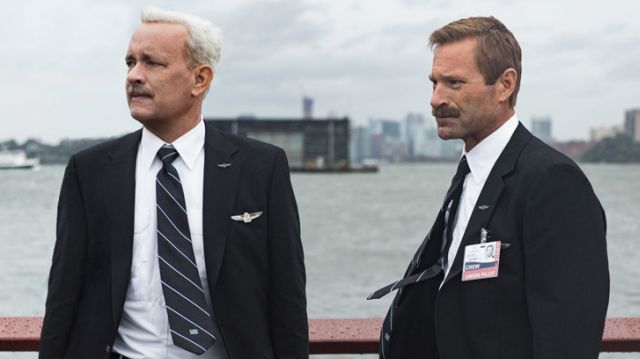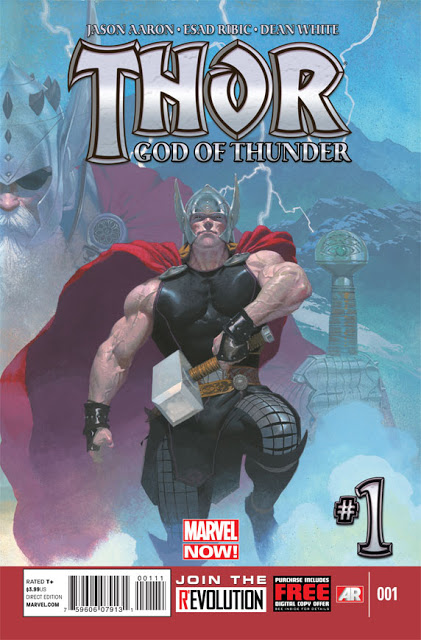With a 155 lives at stake, including his own, and only seconds in which to make a decision that could decide all of their fates, Captain Chesley “Sully” Sullenberger made the decision to land his dying Airbus 320 on the Hudson River in the middle of New York City. It was January, the water was freezing, the air was freezing, it was a tremendously dangerous and risky move to make, but Captain Sully quickly determined it was the best of their many limited options with time quickly running out. And so, on January 15th, 2009, New York City witnessed a miracle, the Miracle on the Hudson, as Captain Sully not only safely landed his plane in the river, but also was able to make sure all 155 people on board walked away alive and well. It was an extraordinary event, and now the new movie Sully lets us in on the rest of the story.
First, if you’re wondering how you make a feature length movie out of an event that only lasted 208 seconds, well, that’s a very good question. This movie’s answer to that question is to pad with as much as you can. However, the interesting thing is much of the padding doesn’t really add much to the story being told. The flashbacks don’t really reveal to us that much about who Captain Sully is, and while his conversations with his wife during the NSTB investigation are bit more interesting, they also don’t really do much to develop either character. Nor do we learn that much about Captain Sully’s co-pilot, or his friends that help him through the investigation, and all of this is rather odd, because in a movie that clearly needs some more story to tell in order to fill up time, developing these characters and their stories would only seem natural. Instead, there are some drawn out moments here and there that pad the time but add little to the characters or the overall story.
However, the story itself is riveting and engrossing. To learn about all that went on in that cockpit during those crucial 208 seconds, and to see behind the curtain as the NSTB tries to determine who was really at fault for such an unprecedented event, makes for some riveting, fascinating drama. There’s really no one else who could have anchored this sort of story. Captain Sully is an affable, humble, average work-a-day Joe who just wants to do the right thing, and I can’t think of anyone better able to embody that than Tom Hanks. He was the right man for the job, just as Captain Sully was the right man for the job in that cockpit on that fateful day.
Hanks is able, with such wonderful subtlety, to convey the powerful emotions that were swirling within Captain Sully as he did his best to do right by those who had entrusted their lives to him. As soon as he’s pulled out of the water, he’s desperate to know what the headcount is; all he wants to know is how many were able to return to their loved ones safely. When he’s told the miraculous final number – all 155 accounted for, safe and sound – the amazing mix of relief, amazement, joy and wonder that crosses Hanks’ face is a powerful, emotional moment that reveals a man who felt the heavy burden of responsibility for the lives of those who were on his flight. It was that moment of deep compassion that reminded so much of our Heavenly Father. He too is concerned with what the final headcount in eternity will be. He too wants to know just how many are going to make it safety. He’s done all he can to provide our way to safety through his Son Jesus Christ, and now he waits to see just how many will take that opportunity to be saved. He doesn’t want anyone to be lost (John 3:16, 2 Peter 3:9), but unlike Sully’s story, the great tragedy of God’s story is there are some that will simply refuse his efforts to provide salvation. There are those who will choose to believe that God isn’t doing what’s needed to get them off the sinking plane, and instead will choose to either remain or look for their own way out, rather than listen to the pilot’s instructions. The even greater tragedy is there are some who are following the pilot’s instructions to get to safety, but who won’t take the time to help those who struggle to find their own way out. God will be glad to hear of all those who arrive safely, but I imagine there will be more heartbreak for him than there was for Captain Sully as he hears of those who refused his provision for salvation.
Sully is movie that very much reflects the character of its namesake. It’s simple, it’s sincere, it’s straightforward, it’s honest, and it’s good. The reason Captain Sully is a hero isn’t so much because he did something remarkable, but more because he didn’t think it was all that remarkable to begin with. It was his job to get those people safely home, and as far as he was concerned, that’s all he did: his job. Clint Eastwood’s job was to create an insightful retelling of this remarkable story, and while the story itself feels thin, like too little butter spread over too much toast, he does a remarkable and moving job with the core of the story: how it was possible for a plane to end up in the Hudson and have everyone survive. I think Captain Sully himself explains best how that was possible as the film concludes, but I’ll let you experience that wonderful little moment for yourself.




![Madden 25: WWMD Week 3 [Updated]](https://www.jamthehype.com/wp-content/uploads/2013/09/maxresdefault-1.jpg)
